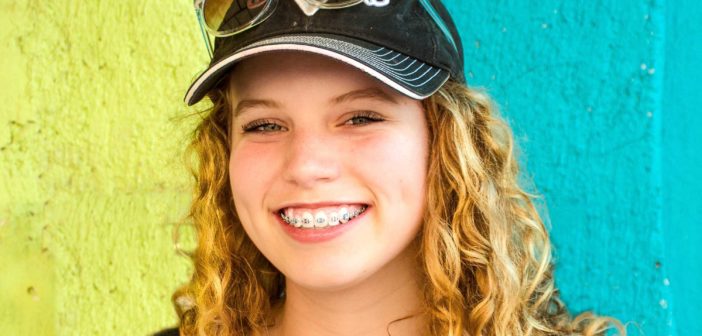The very mention of braces can set a parent’s teeth on edge. It raises a plethora of concerns and questions – How much will it cost? Is it worth it? Is my child the right age?
We’ve pulled together the basic information to get you started.
What are braces?
An orthodontic appliance, braces help position teeth using pressure and force. Braces can help with a number of problems including crooked teeth, overcrowding, gaps in teeth, over or underbite, as well as gum problems.
The set up of traditional braces consists of three main components:
- The brackets which are made from steel or ceramics and are attached to individual teeth with a special glue.
- The archwire which goes through each bracket and is used to guide the teeth into place through tension.
- The elastics or “gates” which help lock the archwire into the brackets.
Depending on treatment requirements, additional appliances such as plates to help jaw expansion or bite position may also be used. There are also “invisible” alignment systems now available.
The length of time braces are on is dependent on the severity of the problems and how well they are maintained. Regular follow up appointments will be required to monitor and adjust the braces during the treatment time which can average from 1-3 years.
What age is best for braces?
The optimal age to start orthodontic treatment is also highly variable, depending on the nature of your child’s needs. Most experts recommend braces be applied between the ages of 10 and 14 years old, once all permanent teeth are in the process of coming down but while the jaw bone is still pliable and adaptive to change. However, these days more and more adults are getting braces so there isn’t an expiry date on when orthodontics can be effective.
The Australian Society of Orthodontists, recommended that an orthodontic assessment be undertaken between the ages of 8 and 10 years to see what, if any, future treatment may be necessary. This initial assessment is usually offered free of charge by most orthodontists.
According to Orthodontics Australia, the following signs may indicate your child could benefit from early orthodontic interventions:
- Early loss of baby teeth (before age five)
- If your child’s teeth do not meet properly at all when biting
- Mouth breathing and/or snoring
- If your child’s front teeth are crowded (you generally won’t see this until the child is about seven or eight years old)
- Protruding front teeth
- Biting or chewing difficulties
- A speech impediment
- If your child’s jaw shifts when he or she opens or closes the mouth
- If your child is older than five years and still sucks a thumb or finger
The best age for braces obviously depends on a number of factors such as your child’s clinical presentation. It is also important to consider your child’s ability to care for them properly and their openness to getting them, as this will impact clinical outcomes and your child’s overall experience.
How much do braces cost?
The cost of braces is based on a number of factors:
- Materials/system used
- Additional appliances required
- Length of treatment
- Individual practitioner fees
According to Orthodontics Australia, when it comes to traditional metal braces, which are the most common orthodontic treatment for children and teens, you can expect to pay anywhere between $5,000 and $9,000 for a standard 18 month plan.
Most orthodontists offer payment plans and should outline your options when providing a quote.
Most health insurance companies also have orthodontic coverage. Be sure to check annual and lifetime limits as these vary widely between policies and expect a 12 month wait time before you can claim.
If you have a Pension Car or Health Care Card, you may be eligible for orthodontic treatment through your local public dental service. Keep in mind these services often have long wait lists.
Having braces can be a time consuming and costly exercise so it is important to fully research your options, including getting a second opinion, to ensure you are getting the best results possible.

